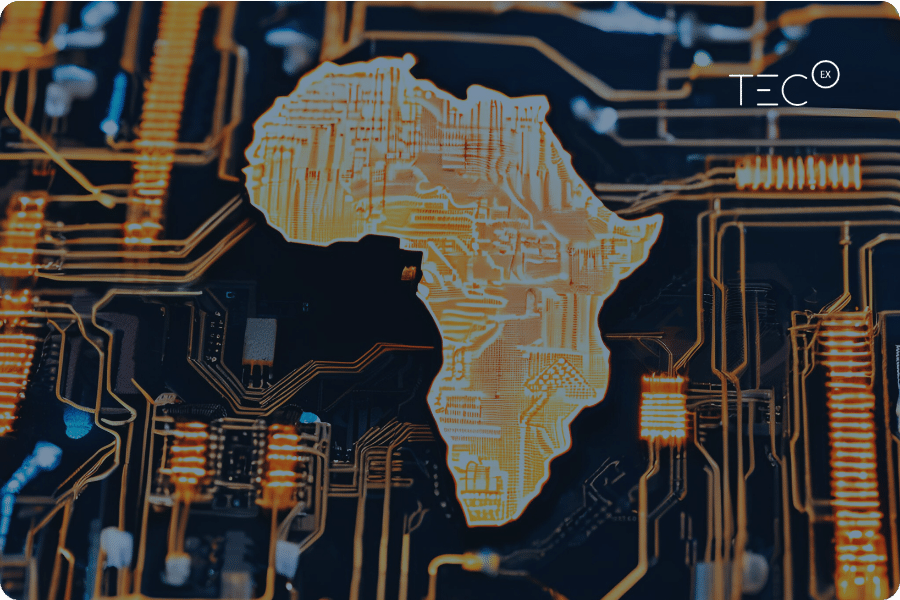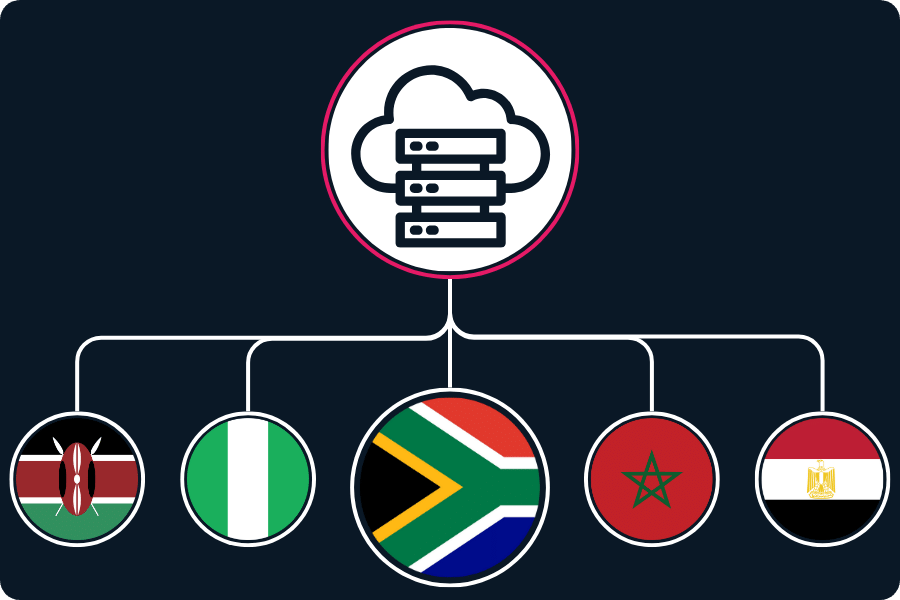This year, we saw a boom in the demand for data center construction in Latin America. But as we enter the year’s close, let’s look at another burgeoning market in Africa.
A continent that is still relatively in its infancy regarding digital infrastructure transformation, Africa is set to become the next hotspot for a growing technological revolution spearheaded by a data center capacity buildout.

The Technological Status Quo In Africa
Currently, much of Africa’s data is stored in Europe. Deep sea cables run this data from Africa to Europe, often entering through France. This storage of data in foreign countries has prompted many African nations to reassess data regulations, especially when considering the storage of sensitive information.
Furthermore, there has been a massive increase in data consumption across Africa in the last couple of years. In 2019, an estimated 525 million people in Africa accessed the internet. This was far greater than that in the United States, Latin America, and the Middle East combined.
The African Technological Boom
Three key metrics drive the digital infrastructure demand in Africa
Data Sovereignty through Regulation
Data sovereignty refers to how the stored data is subject to the laws and governance structures from where it’s collected. As more African governments pass data protection laws, this drives the requirements for sensitive data to be stored in-country.
Liberalization of the Telecoms Industry
Open and carrier-neutral telecom markets drive down network costs, which attracts more users. While this will vary across countries, it has pushed the increase in data consumption and increase competition on the continent.
Network Latency
Everyone has experienced that dreaded loading circle while waiting for an application to load. Edge computing, or ensuring the servers are close to the users, increases network performance and improves latency, leading to better customer experience, security, and functionality.
Investing in Africa
A study in Senegal found that 3G internet coverage comes with a 14% increase in consumption and a 10% decrease in poverty. The relationship between internet access, human welfare, and economic potential cannot be forgotten when investing in the continent.
Hyperscalers, Microsoft and Amazon have brought their cloud services to South Africa. Chinese telecom giant Huawei helped build a data center for the Senegalese government. Both Google and Facebook have invested in new subsea cable technology, thereby broadening the available points of presence along the west coast of Africa. Data center powerhouse Equinix has acquired MainOne and its MDXi subsidiary in a $320 million deal, thus leading the way in the West African data center market with a presence in Nigeria, Ghana, and Côte d’Ivoire. Teraco, which has recently been acquired by another major player in data center capacity, Digital Realty, is building Africa’s largest data center in South Africa. And the list goes on.
A North-South Divide
Overall, more than 30 Tier III data center facilities have come online in Africa since 2016. Historically, the capacity is unevenly spread across the countries, with most of the data centers sitting within South Africa. However, this North-South divide is not set to last as Nigeria, Kenya, Egypt, and Morocco follow in capacity.

Interestingly, Nigeria is targeted to be the most exciting country in terms of digital expansion. Nigeria has the largest GDP in Africa as well as a relatively strong digital native population. Microsoft has partnered with the Nigerian government to launch projects aimed at upskilling Nigerians and promoting digitalization across the country.
Understanding Africa’s Data Center Challenge
It is essential to understand diversity when looking at the African continent. It is rich in diverse groups, differing economies, and different environments. In saying that, the path taken to develop data centers will be hugely different from those taken by the rest of the world.
Data centers are power-hungry. Keeping the equipment cool uses a lot of energy. Meanwhile, access to a reliable power source is low in most countries in Africa. However, this is where African ingenuity steps in. For example, 21st Century Technologies, an ICT solutions provider, has the largest solar farm powering a data center in Nigeria. Whilst in South Africa, Eskom, a parastatal utility, has announced a $7 billion investment in renewable energy over the next nine years.
Despite this, the benefits of getting into Africa far outweigh the costs. The potential within this continent is vast.
Africa’s data center market is projected to grow to $3 billion by 2025.
Getting Your Data Center Gear into Africa
No matter which country in Africa you would like to expand into, you will need an Importer of Record (IOR) to get your gear through customs compliantly.
Many African countries gladly welcome partnerships with foreign investors to take up this capacity building, but they may not have an in-depth understanding of customs compliance. Particularly when it comes to dual-use items such as networking equipment. TecEx can step in and form part of a resilient supply chain and get your critical hardware through customs seamlessly and straight into a data center. Our hassle-free solution enables you to seamlessly deploy you mission-critical tech to data center facilities globally without needing a locally registered entity for import. Utilizing the Delivery Duty Paid (DDP) shipping terms, We can securely and compliantly deploy into any data center across Africa.
Africa is on the precipice of its digital revolution.



